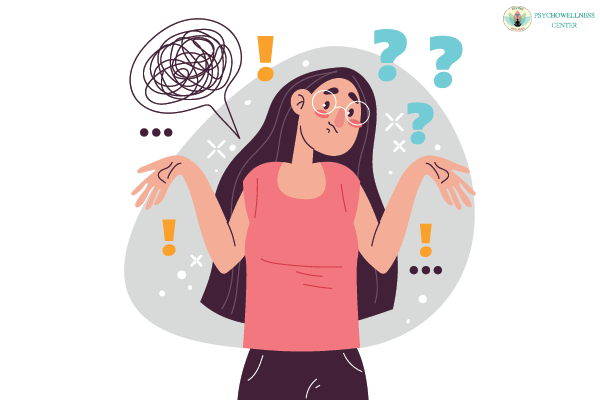Obsessive behavior is a mental health condition that can be debilitating and impact a person’s quality of life. It can manifest in various ways, including obsessive thoughts, compulsive behaviors, and repetitive routines. These behaviors can be time-consuming and may interfere with a person’s ability to complete necessary tasks or maintain relationships. Seek guidance from the Relationship counsellor if these thoughts are creating issues in your personal life. One technique that has shown promise in reducing obsessive behavior is association splitting.
Association splitting is a cognitive-behavioral technique that involves breaking down the associations between obsessive thoughts and compulsive behaviors. The goal of this technique is to help individuals with obsessive behavior learn to recognize and challenge the automatic associations that lead to their compulsive behaviors.
The technique involves identifying the automatic associations that trigger the obsessive behavior. For example, someone with obsessive behavior related to cleanliness may have an automatic association between touching a doorknob and feeling contaminated. Once these automatic associations are identified, the individual is encouraged to challenge them by consciously exposing themselves to the trigger without engaging in compulsive behavior.
Association splitting is a cognitive-behavioral technique that works by breaking down the automatic associations between obsessive thoughts and compulsive behaviors. These automatic associations can be thought of as mental shortcuts that our brains take to quickly move from a trigger or stimulus to an action. In the case of obsessive behavior, these shortcuts can be maladaptive and lead to compulsive behaviors that interfere with daily life.
The first step in association splitting is to identify the automatic associations that trigger the obsessive behavior. For example, someone with obsessive behavior related to cleanliness may have an automatic association between touching a doorknob and feeling contaminated. This association is so ingrained in the person’s thinking that it happens automatically, without conscious effort.
Once these automatic associations are identified, the individual is encouraged to challenge them by consciously exposing themselves to the trigger without engaging in compulsive behavior. In the case of the person with obsessive behavior related to cleanliness, this might involve touching a doorknob and consciously resisting the urge to wash their hands or engage in other compulsive behaviors.
Through this process of exposure and response prevention, individuals with obsessive behavior can learn to break the automatic associations between their obsessive thoughts and compulsive behaviors. Over time, this can lead to a reduction in the intensity and frequency of the obsessive behavior. With repeated exposure to the trigger without engaging in the compulsive behavior, the automatic association weakens, and the person becomes better able to manage their symptoms.
It is important to note that association splitting can be a challenging technique to implement. It requires a high degree of self-awareness and self-control, and it can be emotionally difficult to resist the urge to engage in compulsive behaviors. It is often used in conjunction with other cognitive-behavioral techniques, such as mindfulness and relaxation training, to help individuals with obsessive behavior manage their symptoms.
Through this process of exposure and response prevention, individuals with obsessive behavior can learn to break the automatic associations between their obsessive thoughts and compulsive behaviors. Over time, this can lead to a reduction in the intensity and frequency of the obsessive behavior.
Association splitting can be a challenging technique to implement, as it requires a high degree of self-awareness and self-control. It is often used in conjunction with other cognitive-behavioral techniques, such as mindfulness and relaxation training, to help individuals with obsessive behavior manage their symptoms. Learn these techniques under the guidance of a Clinical psychologist or search for the Best psychologist near me. You can seek help from the online counselor at your convenience.
Research has shown that association splitting can be effective in reducing obsessive behavior. A study published in the Journal of Consulting and Clinical Psychology found that association splitting was effective in reducing obsessive-compulsive symptoms in individuals with OCD. Another study published in Behavior Research and Therapy found that association splitting was effective in reducing compulsive hoarding behavior.
While association splitting can be a useful technique for reducing obsessive behavior, it is not appropriate for everyone. It is important for individuals with obsessive behavior to work with a Therapists in delhi or seek advice from the Best psychologist delhi to determine if association splitting is an appropriate treatment option for them. It is also important for individuals to have a support system in place to help them through the process of challenging their automatic associations and managing their symptoms.
In conclusion, association splitting is a cognitive-behavioral technique that can be effective in reducing obsessive behavior. It involves breaking down the automatic associations between obsessive thoughts and compulsive behaviors, and challenging those associations through exposure and response prevention. While it can be a challenging technique to implement, it has been shown to be effective in reducing obsessive behavior. It is important for individuals with obsessive behavior to work with a mental health professional to determine if association splitting is an appropriate treatment option for them.
You may also make an appointment at the Psychowellness Centre, where well-known, licensed psychologists provide expert mental health therapy. Our center, with locations across Delhi NCR including Janakpuri, Dwarka, and Faridabad, offers comprehensive support for various mental health needs.
Contribution: Dr (Prof) R K Suri, Clinical Psychologist, life coach & mentor TalktoAngel & Ms Aditi Bhardwaj, Psychologist.

